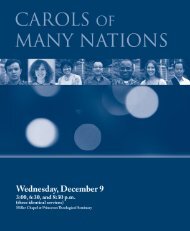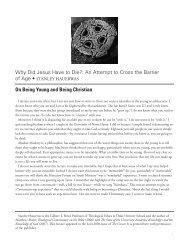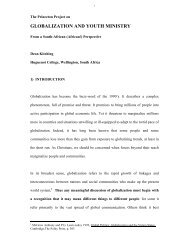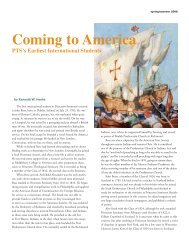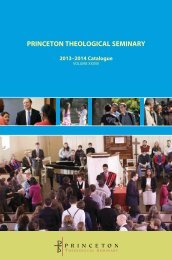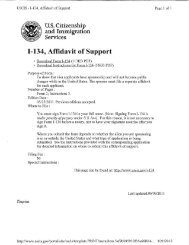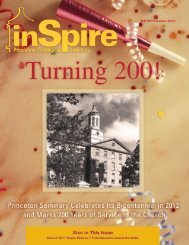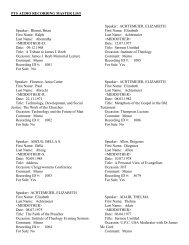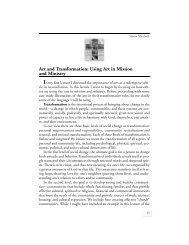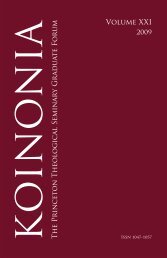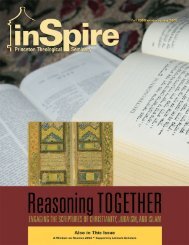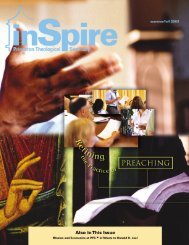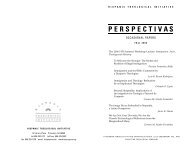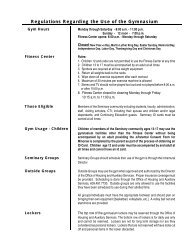PTS Catalogue - Princeton Theological Seminary
PTS Catalogue - Princeton Theological Seminary
PTS Catalogue - Princeton Theological Seminary
You also want an ePaper? Increase the reach of your titles
YUMPU automatically turns print PDFs into web optimized ePapers that Google loves.
TH3400 and TH5400 level courses fulfill the requirement for a doctrine or<br />
theologian course.<br />
TH5415 Holy Scripture and Modern Criticism<br />
The course will address the question of how to think about the authority of holy<br />
scripture in light of modern biblical criticism. How might modern criticism enhance<br />
our understanding of biblical authority, and how might biblical authority embrace<br />
modern criticism responsibly while also transcending it? Authors to be considered<br />
include D.F. Strauss, Gerhard Von Rad, Rudolf Bultmann, Raymond E. Brown,<br />
Gerhard Ebeling, and Karl Barth.<br />
<br />
fulfills the general distribution requirement in theology.<br />
<br />
<br />
Spring Semester, 2012–2013; Mr. Hunsinger<br />
TH5560 Anselm and Barth<br />
Reading and discussion of Anselm’s “Proslogion” and Karl Barth’s “Fides quaerens<br />
intellectum.”<br />
<br />
general distribution requirement in theology.<br />
<br />
<br />
<br />
<br />
Spring Semester, 2012–2013; Mr. McCormack<br />
TH5650 Theology and Neuroscience<br />
In its focus on the human mind and the complex issue of consciousness, contemporary<br />
neuroscience is raising serious questions about the role of the human brain<br />
in religious experience and our knowledge of God. Some forms of “neurotheology”<br />
argue that the human brain is “wired for God” and challenge traditional theology<br />
to consider seriously the significance of the evolution of religious belief and behavior,<br />
the adaptive value of religion, and thus the cognitive and evolutionary roots<br />
of religious faith. Neuroscience also challenges us to cross-cultural assessments of<br />
shamanism as a biogenetic foundation for “first religions,” and for rethinking the<br />
psychological role of emotions in religious experience. Most significantly, neuroscience<br />
challenges theologians to rethink what religious faith is about, and the interdisciplinary<br />
effect of this conversation on notions of revelation and the way we<br />
construct doctrines in Christian theology.<br />
<br />
<br />
Spring Semester, 2012–2013; Mr. van Huyssteen<br />
!# 149#"<br />
cat1213



